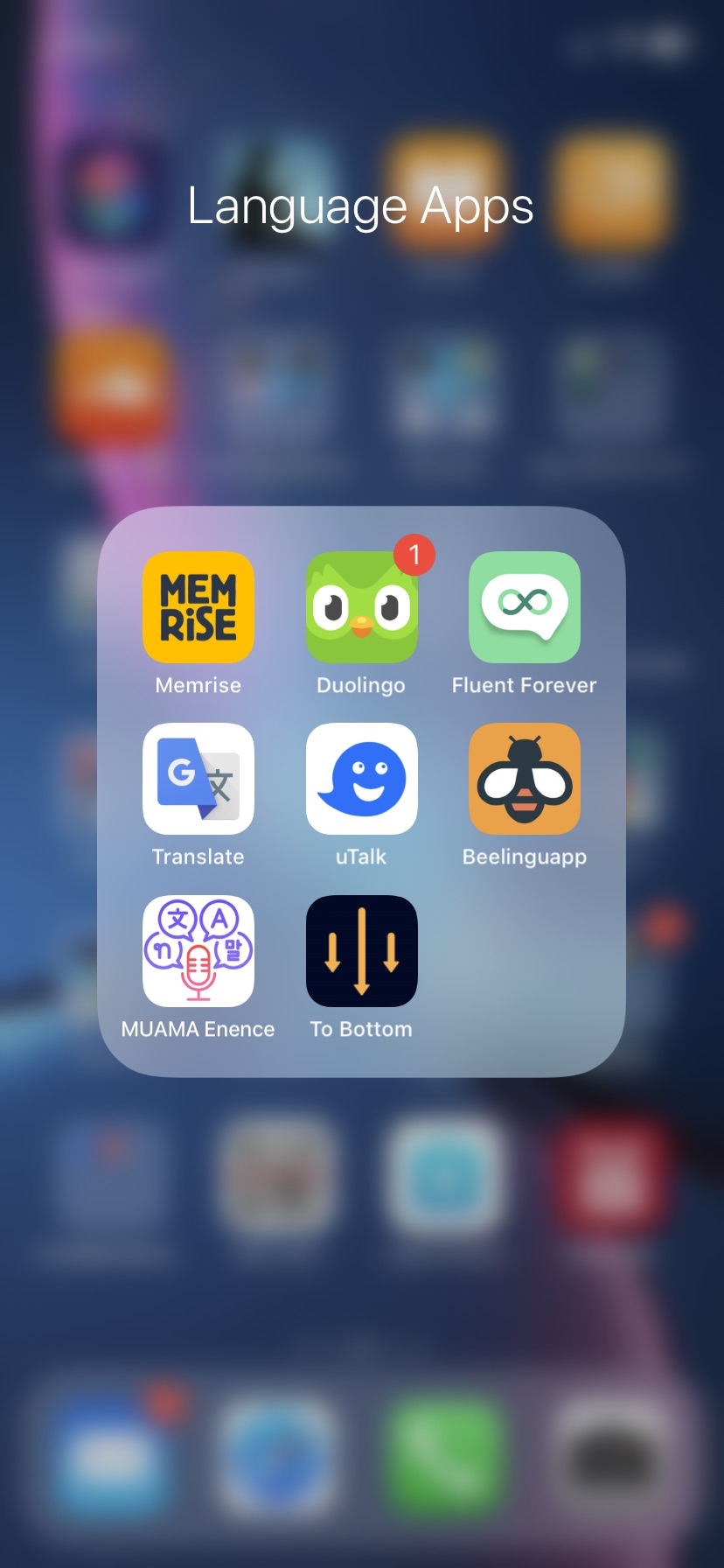Why Knowing Another Language is Cool at any Age
 We're well into January and I've already had a few days of cool skiing behind me. (And no, that's not me, but a photo by Jörg Angeli on Unsplash.)
We're well into January and I've already had a few days of cool skiing behind me. (And no, that's not me, but a photo by Jörg Angeli on Unsplash.)
It's high time though to put together some goals for this year's language learning. But is learning a language even worth the effort?
Here we are at the doorstep of a new decade. New technology - such as instant translators - will make learning a foreign language unnecessary, if not obsolete. So why bother?
We're getting used to wanting things fast (by ordering from Amazon, believing in instant personal transformations, etc). But learning a language takes time. Certainly more than 10 days (as promised by Pimsleur) or 3 months (as promised by Benny Lewis).
Life is getting more automated (think of self-driving cars, robots for the house, etc). Why go to the trouble of memorizing and practicing words, figuring out weird grammar, or struggling to decode a stream of "gibberish"?
Yesterday, I reread Kirsten Winkler's 2015 piece on LinkedIn: The Grim Future of Language Learning. There she concludes: "It might sound like sci-fi, but at the current rate, we’re going to have working technologies in our ears and in front of our eyes that will make language learning pretty much irrelevant for most people". Argument closed!?
For a couple of hours, I felt a little depressed. But then I looked at my own life and went happily back to my language learning routine.
TECHNOLOGY AND SELF-LEARNING
 For sure, advances in technology have revolutionized and disrupted the classical model of language learning - which in my time was a chapter textbook with short reading passages, grammar explanations, and exercises.
For sure, advances in technology have revolutionized and disrupted the classical model of language learning - which in my time was a chapter textbook with short reading passages, grammar explanations, and exercises.
Many of us remember some of that from our college language classroom. (I taught college German for some years using the classic textbook plus-pattern-drill approach. But funny enough, it just wasn't the way I myself learned languages best.)
Now we have everything we need for successful self-learning. We can use language apps, join language groups on social media, access online language sites, learn with YouTube videos, watch foreign language movies with (English or other) subtitles, play other-language audio books, listen to online radio stations from other countries, participate in language exchanges, and so on.
Some of us also have the opportunity to travel and try out our language skills on location.
So what's holding us back? Is it the assumption that we can thrive in a global world just with English? Is it laziness, or the feeling that we have no time? Is it the idea that we've missed the language learning boat, because we're now "too old" - at 30, 45, 60, or at 70?
WHY MAKE THE EFFORT?
Once you're out of school, language learning is no longer a "subject". It becomes part of what makes life interesting and adventurous. Passing exams is no longer part of it. Your goal is to have a conversation with someone who speaks the language. Or to watch a film, read a book, listen to an audio book - all in another language. When you can do that, it's huge.
No doubt, it does get somewhat harder to learn other languages as an adult. Not so much because you have lost all abilities that you had when you learned your first language. It's more because work, family, and social commitments now fill your days. Your priorities have changed.
And there are some other reasons too. For example, from the time we are young, we gradually lose the ability to hear certain sounds. Young children can absorb other languages easily because their brain can identify a broad range of sounds. (See Beyond "Learning a Language Like a Child".) But as children grow into adults, the sounds of their native language become dominant and their ability to hear some sounds of other languages diminishes.
Still, studies have shown that listening to other languages can give us back the ability to hear a broader range of sounds again. Have a look at Gabriel Wyner's article in Scientific American: How to Teach Old Ears New Tricks.
Another complaint we have as adults: we don't like memorization. But language is not just a list of words, it's also context, grammar patterns, tone of voice, etc. By experiencing language as communication, you work your brain on a much more complex level.
Besides giving our brain a boost, learning another language gets us out of the monolingual way of seeing the world. It opens up other cultures to us, teaches us empathy, and helps us become citizens of the world.
Having a device for instant translation can definitely help in certain situations. Especially, if you use it to communicate specific information. But having "technologies in our ears and in front of our eyes" all the time when talking with people, can't be pretty or pleasant.
And, when you have no understanding at all of the local language in the place you're visiting or even living in, you'll remain shut out. Locals are not going to speak English with each other just for your benefit.
So, why is learning a language worth the effort? Because it gives you the tools to live a richer and more interesting life. At any age.
4 TIPS TO MAKE LANGUAGE LEARNING PART OF EVERYDAY LIFE
1. Add language learning to your identity
For many of us, what we do in our free time becomes part of our identity, in addition to the work we do. I see myself as a teacher, but also as a skier, tennis player, and yes, a language learner.
These are things I love to do and to talk about with others. They are often my priority. When I ski, play tennis, practice or use another language, it gives me the chance to stretch my abilities. It feels good. I get a sense of accomplishment.
2. Find your inspiration
 Without question, learning a language takes time and determination. You have to recall words and phrases often until they become automatic. Only with practice can you improve your pronunciation.
Without question, learning a language takes time and determination. You have to recall words and phrases often until they become automatic. Only with practice can you improve your pronunciation.
How do you inspire yourself to keep going even when you get discouraged? For some, the advice of a language hacker or a polyglot - such as Benny Lewis or Steve Kaufman - will do the trick. For others, doing something fun with the language - such as playing a game or listening to a story, will keep them engaged.
Do whatever gets you excited about the language - from listening to songs or audio books, to planning a trip to the country or region you always wanted to visit.
3. Check your mindset
Having the right attitude helps a lot. Learning a language cannot be an instant achievement, but rather stretches out into a series of small, enjoyable successes. If you accept that, you're well on your way. But there's more.
Making mistakes is simply part of learning and nothing to worry about. Learning a language is a process of learning, forgetting, and relearning, like any new skill.
When you make your language learning a fun habit (rather than a chore) it is easier to keep going.
4. Do something in your new language every day
Make a list of "small things" that you could do in the course of your day. Listen to a song, do a few flashcards, watch a YouTube, read a page, write a few lines, list a few words, scan news headlines, check an Instagram account, make a grocery list, copy out a few sentences, read out loud, record yourself and play back, listen to an audio book or podcast, play a game. The list could go on and on.
Make some of the items part of your daily schedule. For example: sing a song in the shower; do a few flashcards with your morning coffee; write a few lines in a journal; take a break and play a language game; read a couple of pages on the bus home or at night before sleeping; watch a film.
So, go for it, take some risks, become adventurous, try things out. And remember these eight words: "Some is good. More is better. Everything counts."
